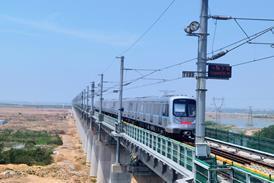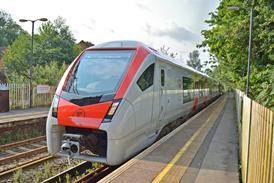RENEGOTIATION of passenger franchises awarded three years ago by Britain’s last Conservative government has been on the agenda since Labour came to power in May 1997, but only now are firm ground rules emerging. They were spelled out in two speeches on September 15 and 17 by Sir Alastair Morton, Chairman of the Shadow Strategic Rail Authority, which has now absorbed the former Office of Passenger Rail Franchising.
Sir Alastair wants to flatten the steep decline in passenger subsidy that was built into the original 25 franchises. So far, the operators have successfully increased total revenue by 20% in real terms since 1995-96 to £3·1bn in 1998-99. But the extra £526m barely covers the £539m cut in subsidy to £1544m over the same period (all at current prices).
Since both passenger-km and journeys rose by 17%, the average fare paid has been increasing by 1% annually in real terms. The SRA’s objective is not to reduce fares, but to divert future revenue increases into investment rather than a further decline in subsidy - especially where franchisees are committed to paying a premium. Sir Alastair was ’sure this government will not wish to claim an intention to tax away the further increase in farebox revenues earned as its sole serious involvement in developing rail transport’s place in our society.’
The SRA’s immediate objective is to persuade the nine companies holding 18 franchises that expire within five years to trade them in for 10 to 20 year franchises. In return for a flatter subsidy reduction profile, or lower premiums, franchise holders would not only invest in new trains but join as partners with Railtrack in funding capacity enhancement on congested routes such as the London - Brighton line. To secure this investment - which Sir Alastair identified as his top priority at last February’s Rail Summit attended by the Prime Minister - ’strong and valuable franchises’ are needed ’around which investment programmes can be structured.’
He also revealed that the new franchises could be different geographical entities. Today’s franchises were based crudely on British Rail’s structure and awarded mainly on a minimum subsidy basis. This time, existing and possibly new bidders will be invited to trade routes and areas. For example, Prism might willingly surrender its troublesome Wales & West franchise to FirstGroup, allowing the W&W and Great Western franchises to be merged. In effect, the under-funded W&W would be inconspicuously cross-subsidised from GW’s over-generous deal. As well as investment, the gain could be much better co-ordination between regional and inter-city services in South Wales and the West Country with more through services to London using GW’s new DMUs, as is currently happening in East Anglia. n




















